Accurate accounting is central to managing a profitable investment property portfolio. In any business, good record-keeping helps you evaluate and understand your business's performance and determine your ROI.
It's also important to identify eligible expenses to reduce your rental property tax bill at the end of the year. Precise record-keeping will also stand you in good stead in the event of an IRS tax audit.
These are our best tips for managing rental property accounting.
Separate Business and Personal Accounts
This is one of the most important first steps for any landlord. Keeping track of expenses and payments can get confusing when there's no clear distinction between your business and personal income and expenses.
Separate accounts will also make tax filing season a lot easier to manage. You should open the following rental property banking accounts:
- Checking
- Savings
- Debit card
- Credit card
A savings account is important for accumulating cash for major future expenses, like building repairs, upgrades, and vacancies.
As your business grows, you should consider creating separate accounts for each of your buildings. It's also a good idea to open a separate savings account for keeping security deposits and pet deposits separate from your income.
Use Rental Property Accounting Software
In the digital age, there's no need to keep boxes of invoices and receipts, so you can balance your books. Rental property accounting software saves landlords many hours of calculations and also offers the following functionalities:
Digitization
You can use scanning applications to record and store all your receipts and invoices as they arrive. This helps you declutter your office and keep all your accounting information in one place.
Automation
Every aspect of your rental property business should have systems in place to ensure smooth operations. The same applies to your accounting tasks.
You can set up automatic payments, receipting, and anything else that makes your accounting easier and more accurate.
Tracking Expenses
Once you've set up separate accounts for your properties, it's easy to track your rental property expenses. It's best to do this using property accounting software and allocating each expense to a category as it occurs.
You can use these allocations to forecast future expenses, calculate tax deductions, and pinpoint areas for cutting costs.
Reconciling Bank Transactions
Software helps you save time, limit errors, and streamline tax reporting by reconciling bank transactions on your behalf. These programs can auto-match transactions according to pre-set rules and take only a few seconds to reconcile your bank transactions.
Effortless Rental Property Accounting
Many landlords find keeping track of their finances difficult at the best of times. Others find financial calculations and forecasts complicated and overwhelming.
There's no need to spend your valuable time crunching numbers when you work with a property management firm. The team at PMI Property Pros has many decades of combined experience in property management.
Our comprehensive range of property management services includes rental property accounting and reporting to help you keep tabs on your property's finances.
Explore the benefits of our expertise in managing your Milwaukee properties.

.jpg)
